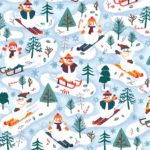Pantone have announced their colour of the year for 2015. A warm, rich wine colour with brown undertones.

Images courtesy of Pantone.com
They describe the colour as:
About the PANTONE Colour of the Year
The colour of the year selection requires careful consideration and, to arrive at the selection, Pantone quite literally combs the world looking for colour influences. This can include the fashion and entertainment industries – including films that are in production, the world of art, popular travel destinations and other socio-economic conditions. Influences may also stem from technology, the availability of new textures and effects that impact colour, and even upcoming sports events that capture worldwide attention.
For 15 years, Pantone’s Colour of the Year has influenced product development and purchasing decisions in multiple industries, including fashion, home and industrial design, as well as product packaging and graphic design. Past colours include:
- PANTONE 18-3224 Radiant Orchid (2014)
- PANTONE 17-5641 Emerald (2013)
- PANTONE 17-1463 Tangerine Tango (2012)
- PANTONE 18-2120 Honeysuckle (2011)
- PANTONE 15-5519 Turquoise (2010)
- PANTONE 14-0848 Mimosa (2009)
- PANTONE 18-3943 Blue Iris (2008)
- PANTONE 19-1557 Chili Pepper (2007)
- PANTONE 13-1106 Sand Dollar (2006)
- PANTONE 15-5217 Blue Turquoise (2005)
- PANTONE 17-1456 Tigerlily (2004)
- PANTONE 14-4811 Aqua Sky (2003)
- PANTONE 19-1664 True Red (2002)
- PANTONE 17-2031 Fuchsia Rose (2001)
- PANTONE 15-4020 Cerulean (2000)

How will Pantone’s colour of the year relate to surface pattern design?
We have seen the influence of Radiant Orchid everywhere over the past year. In their official press release, Pantone give insight into how this will translate into fashion, interiors and graphic design – the key areas of interest for any surface pattern designer:
Marsala for Fashion
Marsala was a hit on the Spring 2015 runways with fashion designers featured in the PANTONE Fashion Colour Report Spring 2015, including Daniel Silverstain, Hervé Léger by Max Azria, and Dennis Basso, incorporating the hue into their collections. The impactful, full-bodied qualities of Marsala make for an elegant statement colour when used on its own or a compelling accent when paired with many other colours.
With the ever-growing popularity of floral prints and striping, variations of this hue will undoubtedly carry into men’s and women’s clothing throughout next year. Marsala is also a popular choice for jewellery and fashion accessories, including handbags, hats, footwear and the burgeoning market of wearable technology.
This highly varietal shade combines dramatically with neutrals, including warmer taupes and grays. Because of its burnished undertones, sultry Marsala is highly compatible to amber, umber and golden yellows, greens in both turquoise and teal, and blues in the more vibrant range.

Marsala for Interiors
Complex and full-bodied without overpowering, Marsala provides a unifying element for interior spaces. Add elegance to any room by incorporating this rich and welcoming hue in accent pieces, accessories and paint. Marsala’s plush characteristics are enhanced when the colour is applied to textured surfaces, making it an ideal choice for rugs and upholstered living room furniture.
Nurturing and fulfilling, Marsala is a natural fit for the kitchen and dining room – making it ideal for tabletop, small appliances and linens throughout the home. The hue will be especially prominent in striping and floral patterns found in printed placemats, dinnerware, bedding and throws.

Marsala for Graphic Design
A rich contrasting colour, Marsala is ideal for use in graphic design and packaging. Eye-catching, but not overwhelming or bright, consumers are immediately drawn to the hue, making it an alluring shade at point-of-purchase. As packaging becomes increasingly more artistic, Marsala will be a natural fit for both high- and low-tech materials, including on-shelf periodicals as well as printed assets, like calendars and stationery.

Click on the image below to watch a fascinating video with Leatrice Eiseman, Executive Director, Pantone Color Institute and David Shah, Editorial Director PANTONEVIEW.com as they discuss Marsala, the PANTONE Colour of the Year 2015 and how this rich and enriching shade can be applied throughout all areas of design.
All images courtesy of Pantone.com
***

















Leave a Reply
You must be logged in to post a comment.